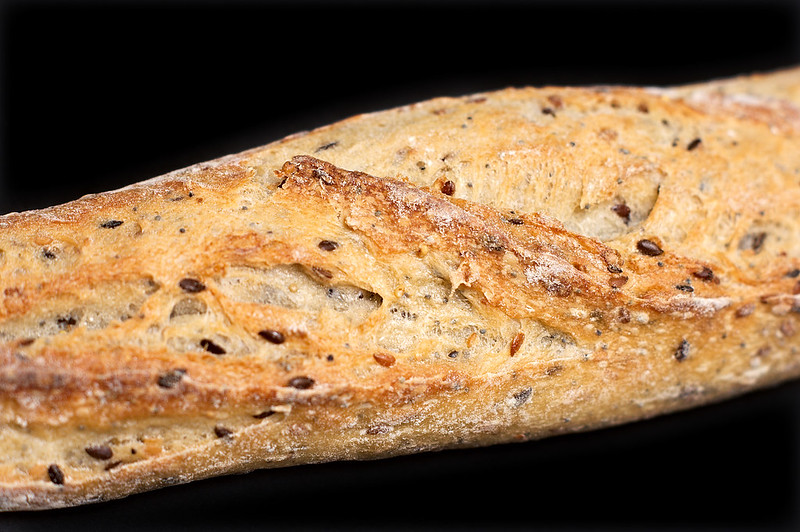
The baguette is a classic French bread that has gained popularity worldwide for its iconic shape, crispy crust, and soft interior. Whether enjoyed as a standalone snack, used as a base for sandwiches, or paired with various spreads and cheeses, the baguette has become a beloved staple in many cuisines. In this comprehensive article, we will delve into the world of baguettes, exploring their nutritional composition, health benefits, and even some interesting facts. Join us as we uncover the delightful and nutritious qualities of this versatile bread.
French Heritage
The baguette, a symbol of French culinary tradition, originated in France during the early 19th century. It quickly became an integral part of French culture and cuisine.
Shape and Name
The word “baguette” means “wand” or “stick” in French, referring to the long, slender shape of the bread. Its iconic form has become synonymous with French baking.
Traditional Recipe
The traditional baguette recipe typically consists of flour, water, yeast, and salt. The dough undergoes a process of fermentation and is shaped into long, slender loaves before being baked to perfection.

Crusty Exterior
The baguette’s crispy crust is achieved through the baking process, which involves high heat and steam. This creates a golden-brown exterior that adds to the bread’s texture and flavor.
Soft Interior
While the crust provides a satisfying crunch, the interior of the baguette is characterized by its soft and airy texture. This contrast in textures enhances the overall enjoyment of the bread.
Caloric Content
It’s important to be mindful of portion sizes when enjoying baguettes, as they can vary in size and caloric content. Moderation is key to incorporating them into a balanced diet.
Carbohydrate Content
Baguettes are primarily composed of carbohydrates, which serve as a valuable source of energy. They contain complex carbohydrates, including starches and dietary fiber.
Protein Content
While not as high in protein as some other bread varieties, baguettes still provide a moderate amount of this essential macronutrient.
Fat Content
Baguettes are relatively low in fat, with most of their caloric content coming from carbohydrates.
Vitamin B
Baguettes contain several B vitamins, including thiamin (B1), riboflavin (B2), and niacin (B3). These vitamins play crucial roles in energy production and the functioning of the nervous system.

Iron
Baguettes provide a small amount of iron, an important mineral involved in oxygen transportation and the production of red blood cells.
Selenium
Baguettes contain trace amounts of selenium, a mineral that acts as an antioxidant and supports thyroid function.
Dietary Fiber
Baguettes typically contain a moderate amount of dietary fiber. This fiber contributes to digestive health, promotes feelings of fullness, and aids in maintaining a healthy weight.
Balanced Meals
Pairing baguettes with protein-rich fillings, such as lean meats, fish, or plant-based alternatives, can create a well-rounded and satisfying meal.
Whole Grain Alternatives
Look for whole grain baguettes, which are made with whole wheat or other whole grain flour. These varieties offer a higher fiber content and a broader range of nutrients compared to refined white flour baguettes.

Final Word
In conclusion, the baguette is a versatile bread that adds a touch of French flair to any meal. While primarily composed of carbohydrates, baguettes can be enjoyed as part of a balanced diet when consumed in moderation. Pairing them with nutrient-rich fillings and practicing portion control allows for a satisfying and nutritious culinary experience. So, indulge in the delightful taste and cultural heritage of the baguette while appreciating its contribution to a well-rounded diet.
Frequently Asked Questions (FAQs)
Are baguettes gluten-free?
No, traditional baguettes are made with wheat flour and are not gluten-free. However, there are gluten-free alternatives available using different flours, such as rice or almond flour.
Can baguettes be part of a weight loss diet?
Baguettes can be enjoyed as part of a weight loss diet when consumed in moderation and paired with nutritious fillings. Opting for whole grain variations and practicing portion control can be beneficial.
How long do baguettes stay fresh?
Baguettes are best enjoyed when fresh. They are typically at their prime on the day they are baked. However, they can still be enjoyed for a day or two if stored properly in a paper bag or bread box to maintain their crustiness.
Are there any alternatives to wheat-based baguettes for gluten-sensitive individuals?
Yes, there are gluten-free baguette options available that use alternative flours like rice flour, tapioca starch, or a combination of gluten-free flours.
Can baguettes be frozen for later use?
Yes, baguettes can be frozen to extend their shelf life. It’s best to slice them before freezing, so individual servings can be easily thawed as needed.
Was this page helpful?
Our commitment to delivering trustworthy and engaging content is at the heart of what we do. Each fact on our site is contributed by real users like you, bringing a wealth of diverse insights and information. To ensure the highest standards of accuracy and reliability, our dedicated editors meticulously review each submission. This process guarantees that the facts we share are not only fascinating but also credible. Trust in our commitment to quality and authenticity as you explore and learn with us.
